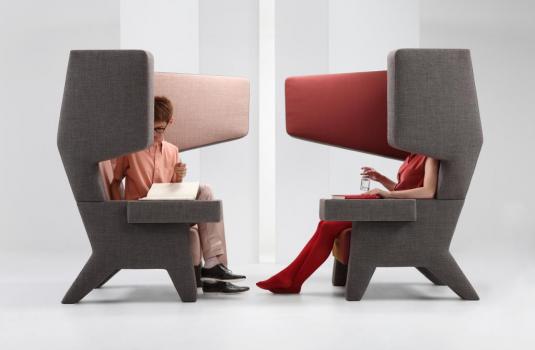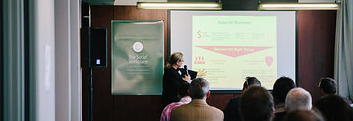Coworking spaces, social entrepreneurship and the future of Europe: From Davos to Lesvos
Vasili Sofiadellis has been going to Lesvos, the birthplace of his parents, every year for the last 10 years. Last year he traveled to the Greek island with his colleague Paul Keursten, founder of OPEN coworking in South Africa, and was immediately struck by the weight of the current refugee crisis affecting Europe today. Lesvos has seen one of the largest concentrations of individuals fleeing their war-torn countries.
While the greek people have been extremely supportive during this crisis, bringing much-needed aid to the hundreds of refugees arriving each day on their shores, Vasili saw that there was also a need for something more sustainable. As over an estimated 1,011,700 imigrants arrived in 2015, it is now essential that Europe begins to carve out solutions on not just how to deal with the immediate circumstances, but how to create long-term acceptance and opportunities for both refugees and European citizens to embrace a brighter future.
After months of planning and establishing partnerships with various players in the startup academic and political world, including the mayor of Lesvos, BeyondCSRNet and Visions2Ventures are now preparing to launch their newest initiative: “Coworking spaces, social entrepreneurship and the future of Europe: From Davos to Lesvos”. Appropriately taking place on the upcoming Europe Day, an annual celebration of peace and unity, the event will be on May 9th, at the Lesvos town hall, and aims to find ways to address the current humanitarian crisis through the engagement of European citizens and the entrepreneurial spirit.
By bringing together diverse stakeholders who will represent these refugee communities, as well as academic institutions, entrepreneurs, and investors, “the event will aim to co-create a productive environment where the community will develop tangible and sustainable solutions in order to best responding to the multidimensional challenges of humanitarian crisis”. In addition, they will also live stream of the day’s talks and workshops across their network of European coworking spaces that have shown solidarity and support to redefining Europe.The primary goal of the initiative will be to launch an inclusive and collaborative platform based on a network of coworking spaces across Europe that will ultimately act as a catalyst for systemic change.
Earlier this year, we spoke with Vasili about what inspired him initially to start this initiative, which came from a deep realization that many of the refugees coming over to Europe are hindered by negative views created through widespread media coverage as well as the economic difficulties faced by European citizens in recent years. What Vasili and other initiatives exploring potential solutions to the refugee crisis, like Startupboat, noticed first and foremost was that many of the migrants making their way to Europe are highly educated and only left their homes as they had no other choice.
In this realization, he saw the potential for creating a community which would lead to a brighter future for these refugees. “It is imperative for Europe not only embrace these people but to also create an enabling environment for them to integrate into communities by providing them with the opportunities through which they can become self-sustainable,” explained Vasili.
As Europe Day pays tribute to political peace humanitarian rights, “Coworking spaces, social entrepreneurship and the future of Europe: From Davos to Lesvos” strives to redefine how we understand the European future. Through creating a supportive community that utilizes “social entrepreneurship and innovation as a major source of wealth and job creation, economic and technological growth and social transformation” citizens of Europe can better embrace the humanitarian challenges they are currently facing.
Call for Speakers and Collaborators
Participants at the conference will include, representatives from various international organizations, academia, coworking spaces, social entrepreneurs and media. If you are interested in speaking at or supporting Initiative“Coworking spaces, social entrepreneurship and the future of Europe: From Davos to Lesvos” you are encouraged to get in touch with the organizers.
Organizers:
BeyondCSRNet (Beyond Corporate Social Responsibility Network) London-Athens is a startup not for profit organization that links today’s enterprises to tomorrow’s business models, which was inspired by the UN’s SD/Global Goals, by turning CSR into an Impact Investment Tool for Social Change. Member of: The Finance Lab (UK), ITU’s Group on Innovation & Entrepreneurship/Agora (Greek Ecosystem), Impact Hub, Alumni Mentors Network of the University of Warwick
Visions2Ventures: Visions2Ventures is an African-centered venture capital and bespoke advisory firm, focused on investment readiness and market access for high impact tech entrepreneurs. Our vision is to enable socially driven tech start-ups to flourish into successful high-impact businesses that shape an inclusive and sustainable future. Visions2Ventures is a Silicon Cape board member and EBAN’s European Impact Investment Committee
Source:





Recent Comments